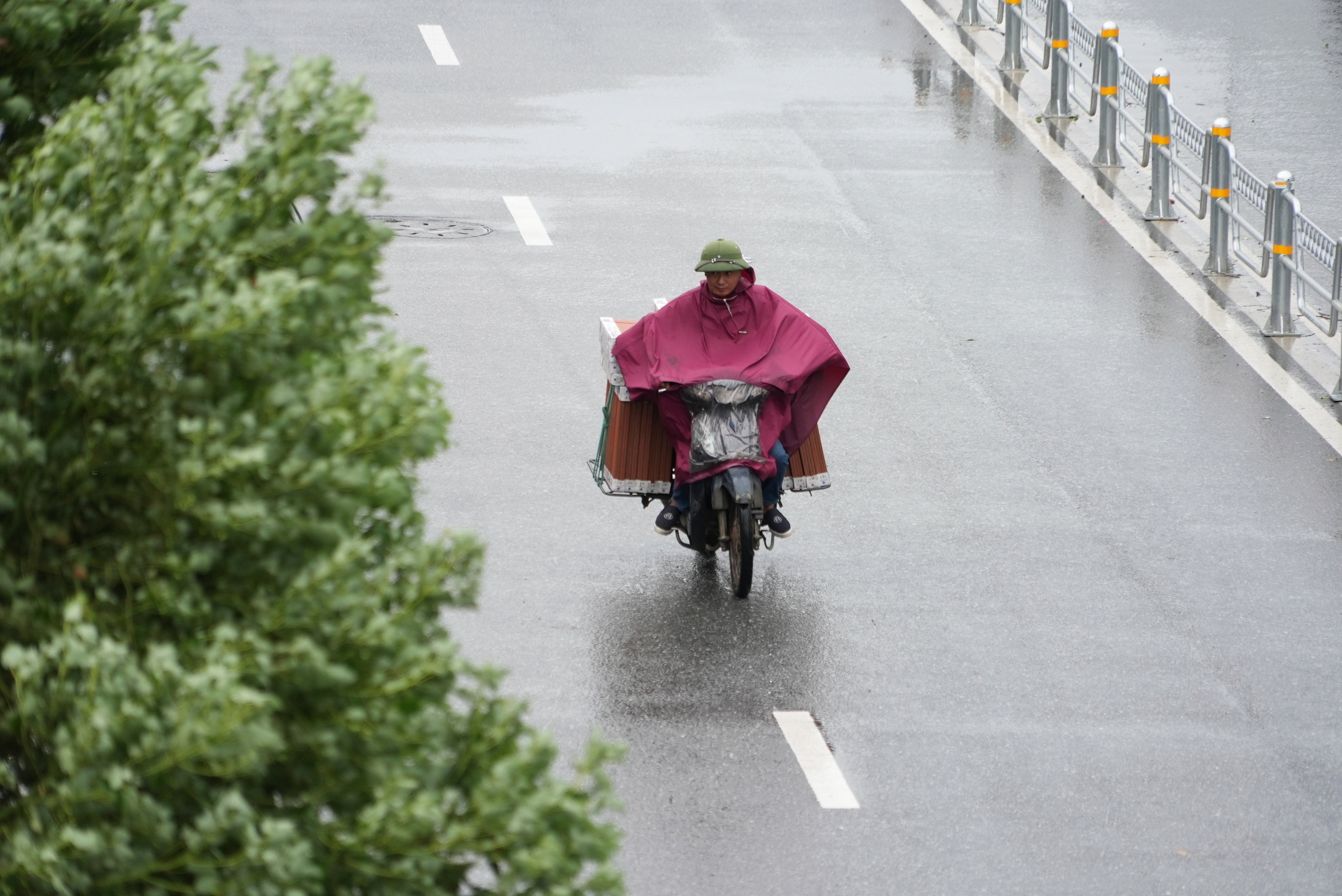Tropical Storm Wipha made a second landfall in Vietnam on Tuesday, after lashing China earlier, bringing torrential rain and strong winds as authorities rushed to evacuate low-lying areas and warned of possible floods and landslides.
The storm came ashore in northern Vietnam around 10am local time in Hung Yen and Ninh Binh provinces with sustained winds reaching up to 102 kmph (63 mph), according to Vietnam’s national weather agency.
Heavy rain in China's eastern province of Shandong killed two people and left 10 people missing after half a year's worth of rain fell in five hours, drenching the Laiwu district in the city of Jinan, the local government reported on Tuesday.
Xinhua reported that two Chinese nationals were also killed in Thailand due to the tropical storm. The meteorological department warned of thunderstorms and possible flash floods from Tuesday to Thursday, especially in the country's north and northeast, while the south could experience tides as high as four meters. The department advised small boats to avoid sailing during the period.
In Vietnam, nearly 350,000 soldiers were placed on standby as the country braced for up to 50cm (20 inches) of rain in affected regions.
Although no casualties were immediately reported there, damage assessments are still underway. In Haiphong, a key port city, residents described moderate wind and rain early Tuesday.
“We are able to go outdoors this morning as the wind is not too strong,” a Cat Ba Island resident told Reuters.
Airports and ports across northern provinces, including Hai Phong and Quang Ninh, suspended operations. More than 150,000 hectares of aquaculture farms and over 20,000 floating fish cages were reported at risk, according to state media. In Hanoi, usually busy streets emptied as officials urged people to stay indoors and evacuate flood-prone buildings.
“If the storm is serious, people shouldn’t go out anyway because it would be dangerous on the road and there is also a chance of flooding,” Minh Doan, a taxi driver in the capital, told AP.

In China, the storm’s remnants combined with ongoing monsoon activity to unleash extreme rainfall across multiple provinces. In Shandong, more than 360mm of rain – about half the city of Jinan’s average annual total – fell in just five hours early Tuesday. The sudden deluge also left 10 missing, local authorities said, with flash floods damaging homes and cutting off access to mountain villages.
Southern Chinese provinces including Guangdong, Guangxi, and Hainan also remain on high alert following Typhoon Wipha’s landfall on Sunday. The storm knocked down trees, grounded flights, and caused widespread power outages in Hong Kong and parts of mainland China before weakening over land.
According to China’s national meteorological agency, more rainfall is expected in the coming days, heightening the risk of flash floods and landslides. Extreme weather has already caused at least 307 deaths or disappearances across China in the first half of 2025 and resulted in economic losses exceeding $7.6bn, Reuters reported.
“Rising sea surface temperatures, fuelled by climate change, can intensify these storms,” said Benjamin P. Horton, dean of the School of Energy and Environment at City University of Hong Kong. Warmer oceans are making typhoons stronger and wetter, he said, shifting rainfall patterns and exposing vulnerable infrastructure across East Asia.
Elsewhere in Asia, the monsoon system has wreaked havoc. In the Philippines, more than 80,000 people remain in emergency shelters following weekend floods and landslides that killed at least three people. In Thailand, authorities warned of possible 4-metre tides and flash floods through Thursday, with the meteorological department advising boats to stay ashore.
Wipha is expected to weaken into a low-pressure system as it moves southwest across Vietnam but will continue to bring heavy rain through Wednesday. Forecasters warn that saturated soil and swollen rivers could still pose significant danger in the coming days.
China hit by multiple storms, floods, and heatwaves as Typhoon Wipha makes landfall
South Korea flood death toll rises to 18 as southern regions battered by record rain
Death toll from South Korea rains rises to 16
Typhoon Wipha: Hong Kong issues highest storm alert after over 200 flights cancelled
Forever chemicals in household objects linked to type 2 diabetes, scientists warn
Homes and factories ‘can be built faster’ with water reforms, says Reed







